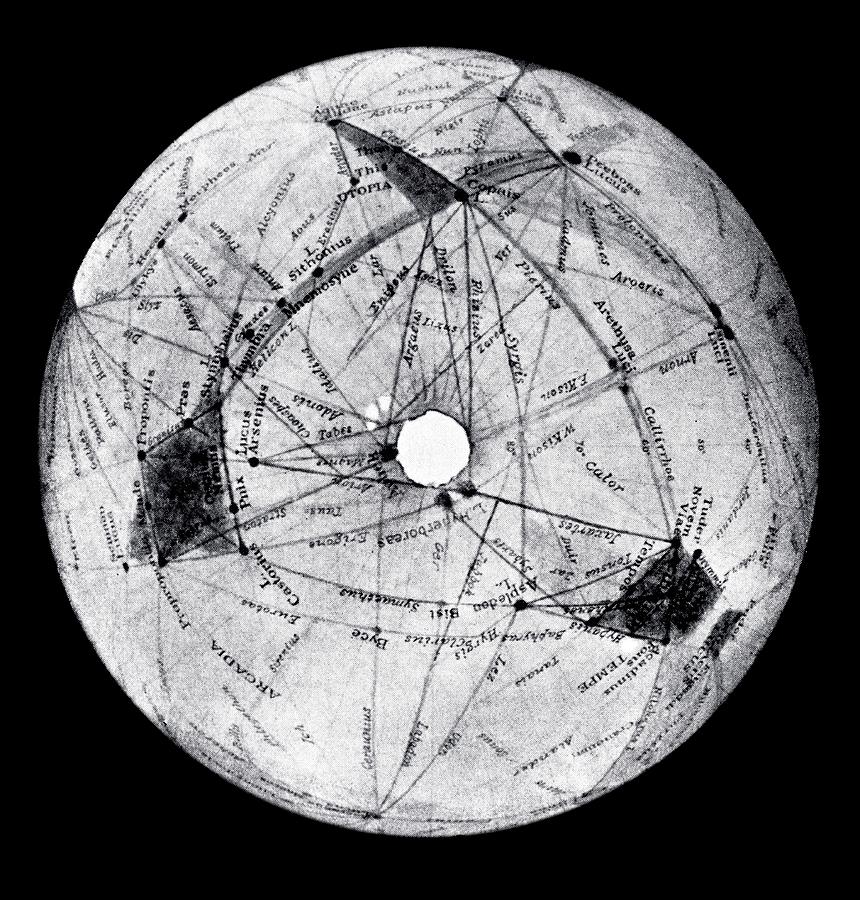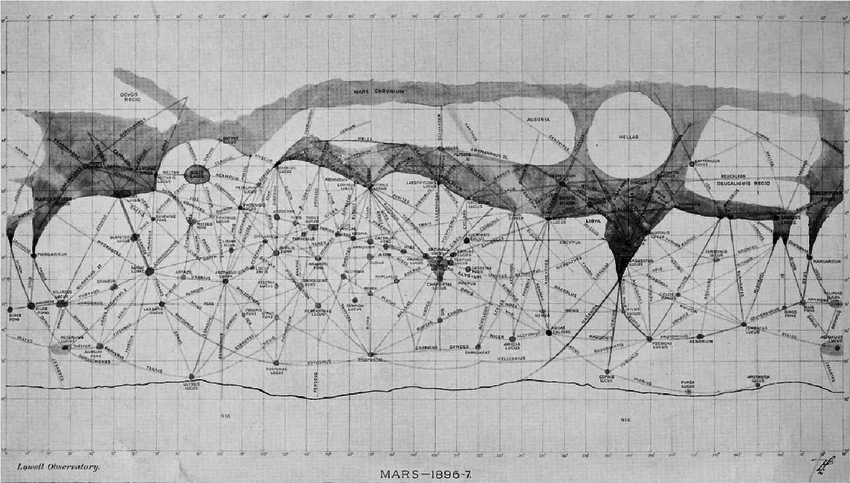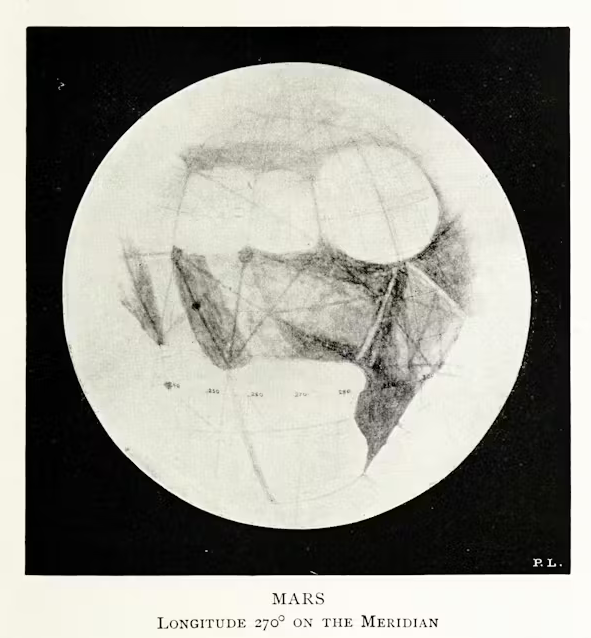The Subject—Percival Lowell
Percival Lowell (1855–1916) was an American astronomer, author, mathematician, and businessman. He is principally known for promoting the idea that Mars featured a network of canals constructed by intelligent beings.
Narrative of Observations and Speculations:
- Inspired by Giovanni Schiaparelli’s 1877 reports of “canali” on Mars—Italian for “channels,” later mistranslated as “canals”—Lowell devoted substantial resources to this line of inquiry.
- In the 1890s, Lowell founded the Lowell Observatory in Flagstaff, Arizona—selected for its clear skies—to conduct his Martian observations.
- He produced detailed maps depicting a global network of straight lines, labeled canals, interlinked across the planet’s surface, connected to circular dark spots designated as oases. He interpreted these structures as engineered irrigation systems distributing water from polar caps to equatorial regions.



Quotes Attributed to Lowell
- “That Mars is inhabited by beings of some sort or other we may consider as certain as it is uncertain what these beings may be.”
- “Girdling their globe and stretching from pole to pole, the Martian canal system not only embraces their whole world, but is an organized entity. Each canal joins another, which in turn connects with a third…”
- “There are celestial sights more dazzling, spectacles that inspire more awe, but to the thoughtful observer… there is nothing in the sky so profoundly impressive as the canals of Mars. Fine lines… cobwebbing the face of the Martian disk…”
- “Though the Earth and Mars agree in being planets, they differ constitutionally in several important respects… the curious network… suggests handicraft; it implies it much more when considered from a Martian standpoint.”
Subsequent Refutation
Technological progress—particularly photographic imaging and spacecraft missions—revealed that the so-called canals were optical illusions, not artificial structures. No evidence supports the existence of engineered water distribution systems on Mars.
Epistemological Lesson
The case of Percival Lowell illustrates the imperative of verifying hypotheses through reliable methods before drawing conclusions. The misinterpretation of visual data, confirmation bias, and speculative reasoning without rigorous validation emphasize the risk of constructing strong beliefs on inadequate evidence.
Phenomenon interpretation is not a mirror of the true world. It's a tool for solving problems under uncertainty. And without verifiable predicative power - they are useless.
Just as Lowell’s canals turned out to be illusions, it is worth reflecting on contemporary scientific theories. Concepts such as dark matter, quantum loop gravity and string theory are nothing but pure speculation. These may one day be validated, radically revised, or entirely discarded. Their current acceptance without empirical confirmation completely parallels the speculative confidence Lowell placed in his Martian canals.